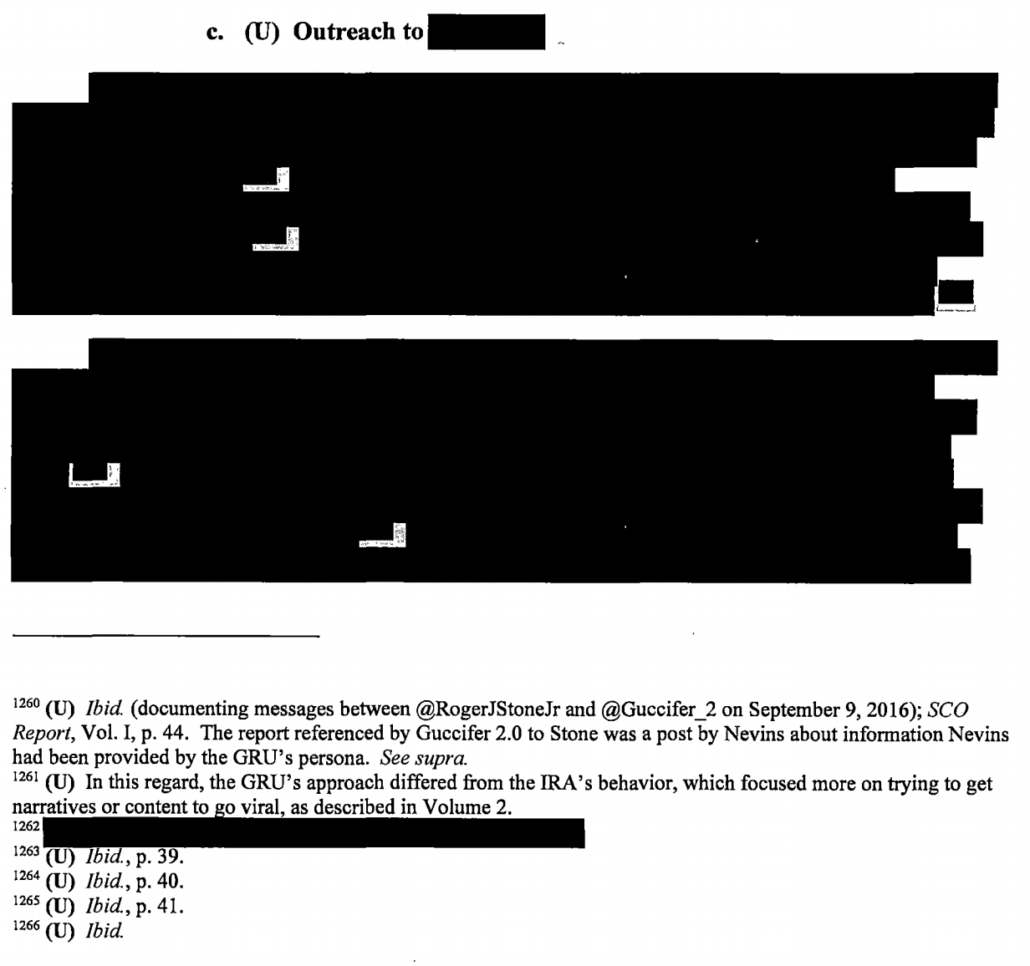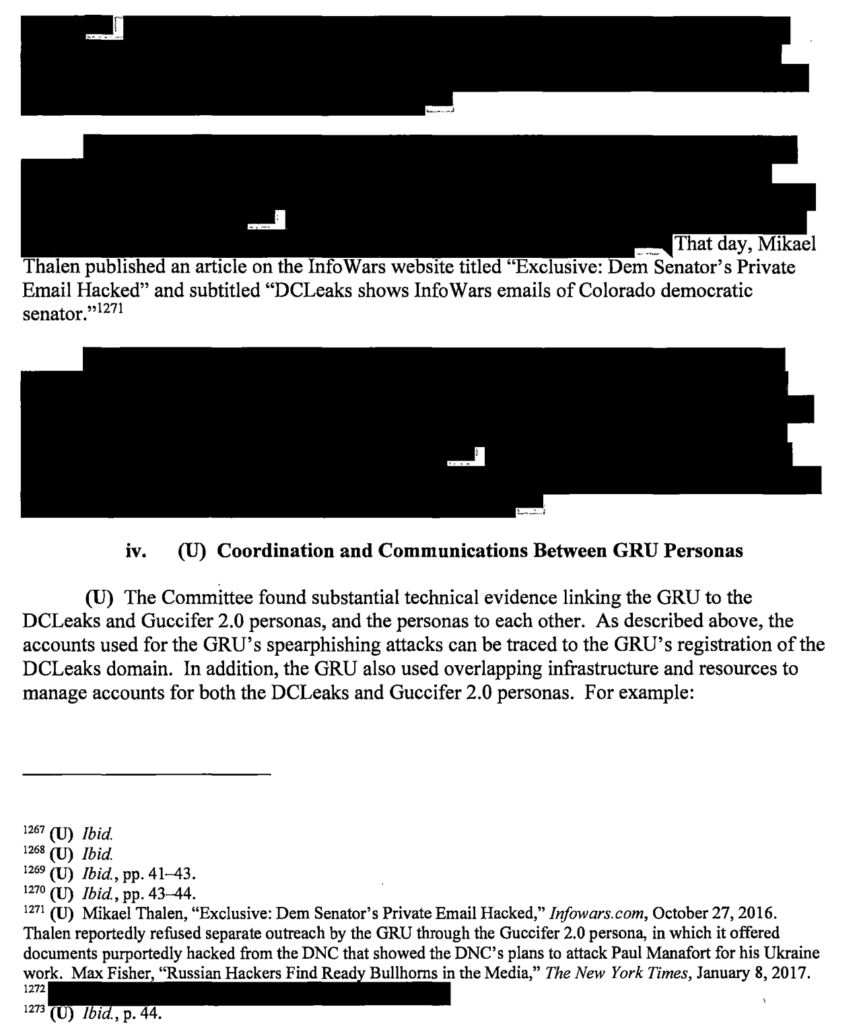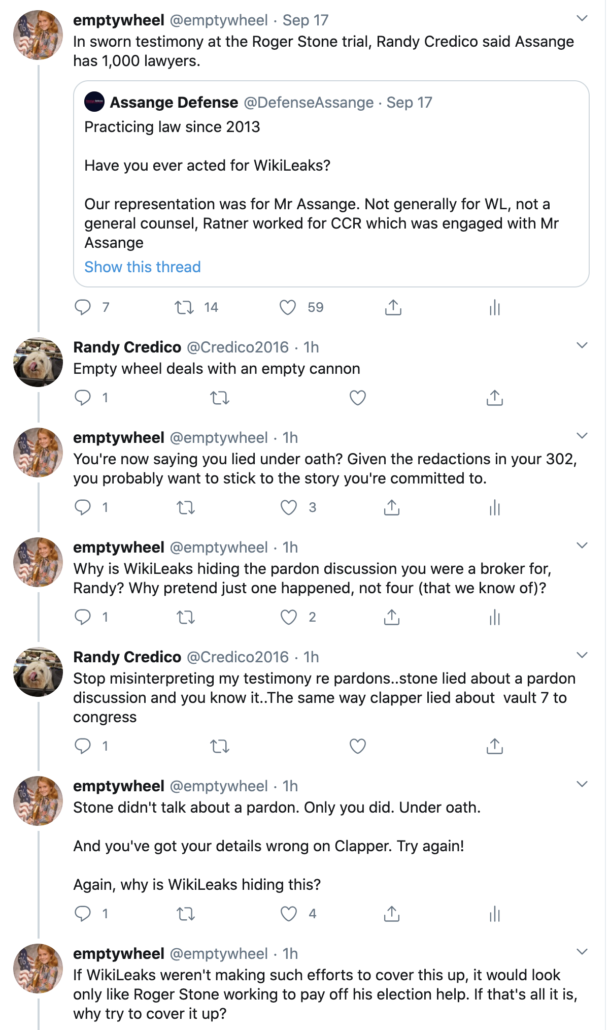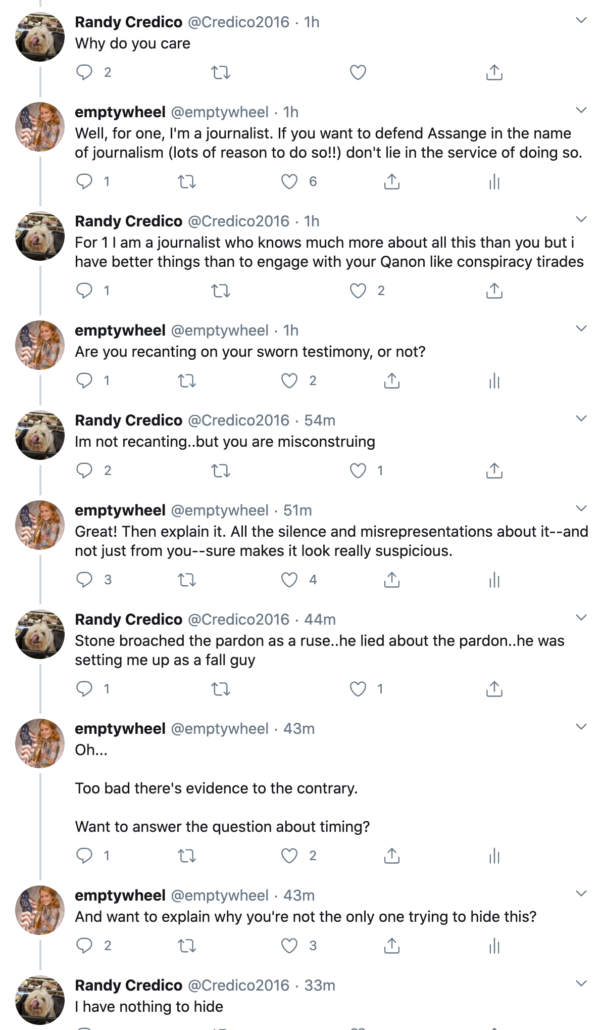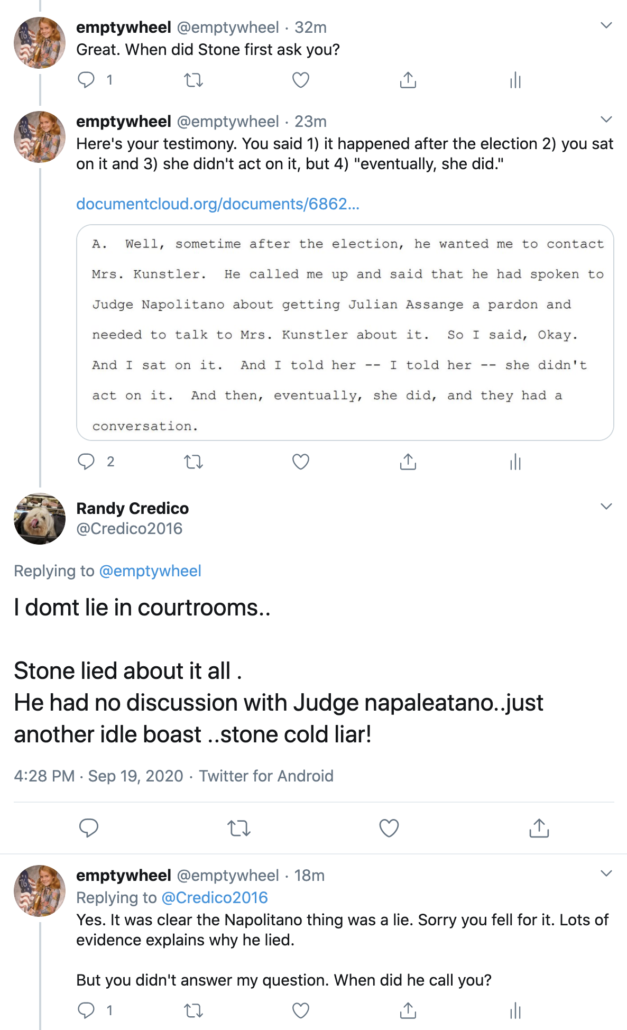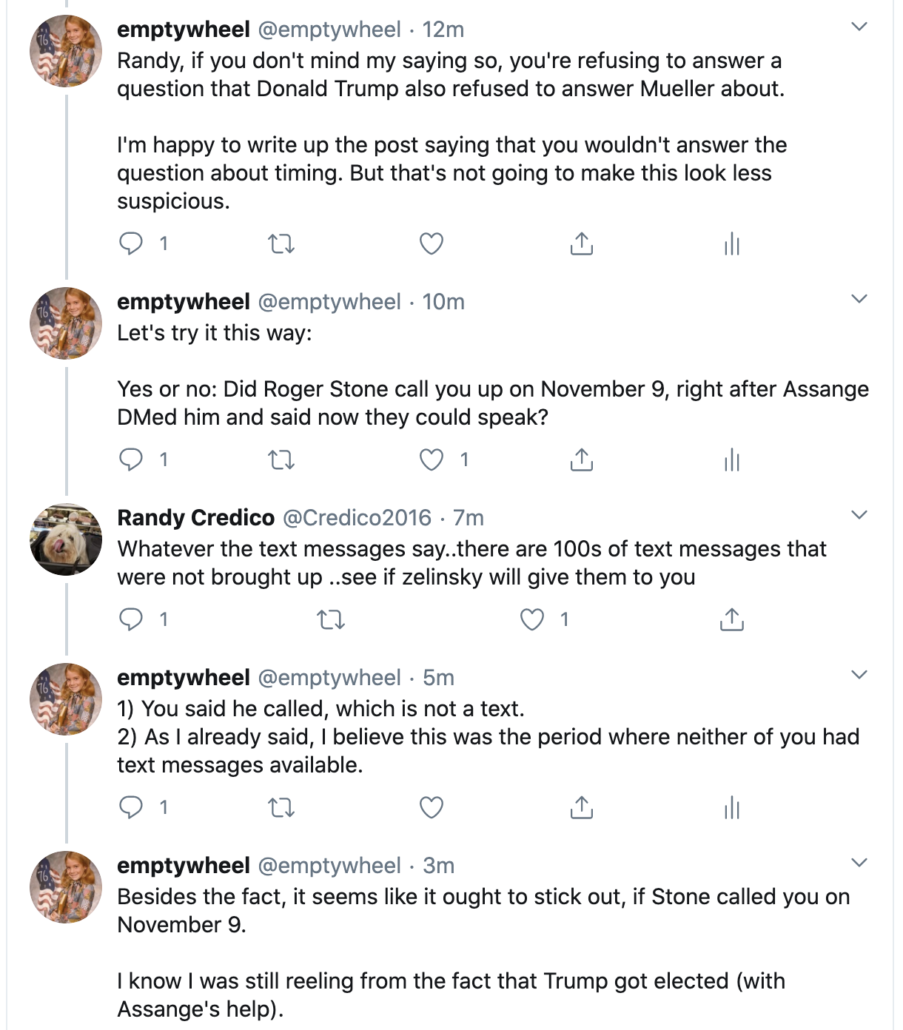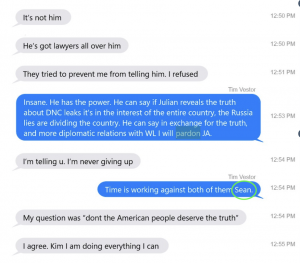Why a Clinton Foundation/Crossfire Hurricane Comparison Might Backfire
Billy Barr has suggested a couple of times that if Trump wins, he’ll shut down the Durham inquiry.
A story from NYT may provide some insight as to why (and also might explain why Nora Dannehy resigned). John Durham is comparing the decisions made on the Clinton Foundation investigation with those made on the Crossfire Hurricane investigation.
Mr. Durham, the U.S. attorney in Connecticut assigned by Mr. Barr to review the Russia inquiry, has sought documents and interviews about how federal law enforcement officials handled an investigation around the same time into allegations of political corruption at the Clinton Foundation, according to people familiar with the matter.
As NYT explains it, the basis of comparison is that when FBI agents tried to use the Clinton Cash book to get a subpoena, they were shot down, whereas the FBI did use oppo research — the Steele dossier — to get the Carter Page FISA.
The allegations against Mrs. Clinton were advanced in the book “Clinton Cash,” by Peter Schweizer, a senior editor at large at Breitbart News, the right-wing outlet once controlled by Mr. Trump’s former top aide Stephen K. Bannon. The book contained multiple errors, and the foundation has dismissed its allegations.
But the book caught the attention of F.B.I. agents, who viewed some of its contents as additional justification to obtain a subpoena for foundation records.
Top Justice Department officials denied a request in 2016 from senior F.B.I. managers in Washington to secure a subpoena, determining that the bureau lacked a sufficient basis for it and that the book had a political agenda, former officials said. Some prosecutors at the time felt the book had been discredited.
The decision frustrated some agents who believed they had enough evidence beyond the book, including a discussion that touched on the foundation and was captured on a wiretap in an unrelated investigation. Other F.B.I. officials at the time believed the conversation’s relevance to the foundation case was tenuous at best.
The disagreement erupted anew later in the summer of 2016, when a top Justice Department official suspected that F.B.I. agents in New York were trying to persuade federal prosecutors in Brooklyn to authorize a subpoena after the department’s officials in Washington had declined such a request. By the time the F.B.I. officials revisited the issue, the Justice Department officials were also concerned that serving subpoenas would violate the practice of avoiding such investigative activity so close to an election.
One obvious conclusion from this might be that, had the FBI vetted the Steele dossier the way they did the Clinton Cash book, they would have discovered problems and not obtained the application. (Never mind that the FBI was targeting a guy who might have been and later on did victimize Trump by claiming he represented him on Ukrainian matters, rather than Trump himself.)
It’s a fair point, if you ignore that Christopher Steele was an established informant.
But the comparison could also backfire in spectacular fashion.
After all, after multiple Inspector General reviews, Michael Horowitz never found proof that any political bias from Peter Strzok or others influenced an investigative decision. He did, however, show that the FBI agent running an informant on the Clinton Foundation was biased.
We reviewed the text and instant messages sent and received by the Handling Agent, the co-case Handling Agent, and the SSA for this CHS, which reflect their support for Trump in the 2016 elections. On November 9, the day after the election, the SSA contacted another FBI employee via an instant messaging program to discuss some recent CHS reporting regarding the Clinton Foundation and offered that “if you hear talk of a special prosecutor .. .I will volunteer to work [on] the Clinton Foundation.” The SSA’s November 9, 2016 instant messages also stated that he “was so elated with the election” and compared the election coverage to “watching a Superbowl comeback.” The SSA explained this comment to the OIG by saying that he “fully expected Hillary Clinton to walk away with the election. But as the returns [came] in … it was just energizing to me to see …. [because] I didn’t want a criminal to be in the White House.”
On November 9, 2016, the Handling Agent and co-case Handling Agent for this CHS also discussed the results of the election in an instant message exchange that reads:
Handling Agent: “Trump!”
Co-Case Handling Agent: “Hahaha. Shit just got real.”
Handling Agent: “Yes it did.”
Co-Case Handling Agent: “I saw a lot of scared MFers on … [my way to work] this morning. Start looking for new jobs fellas. Haha.”
Handling Agent: “LOL”
Co-Case Handling Agent: “Come January I’m going to just get a big bowl of popcorn and sit back and watch.”
Handling Agent: “That’s hilarious!” [my emphasis]
And, as Peter Strzok has said repeatedly, had he really wanted to sabotage Trump’s election, he would have leaked details of the investigation, particularly after, in August 2016, he was shot down in his effort to investigate more aggressively by doing things like issue a subpoena.
In precisely the same situation, the Clinton Foundation Agents did leak details of the investigation, and in fact did have an effect on the election.
Hell, if Durham were allowed to continue down this path of comparison, we might finally figure out which New York Field Office were leaking rampantly during the election, leading to promises of indictments on Fox News.



